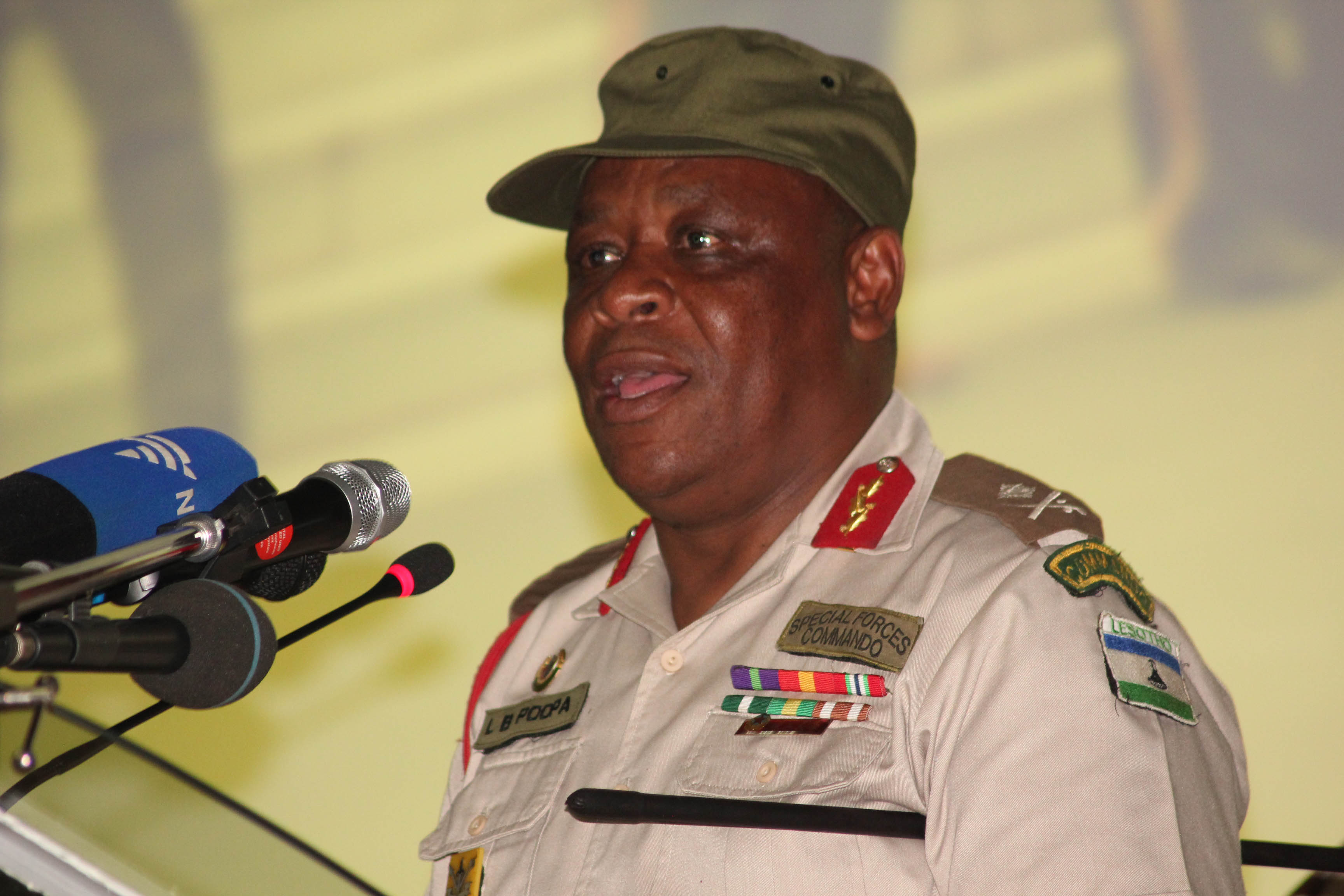WE are heartened by the conciliatory approach by various speakers at the memorial service for the late Lesotho Defence Force (LDF) commander, Lieutenant-General Khoantle Motšomotšo, suggesting the army is ready to turn a new leaf in terms of its image and role in national affairs.
As we report elsewhere in this edition, various speakers including Brigadier Ramanka Mokaloba, the LDF will not allow the co-conspirators in Lt-Gen Motšomotšo’s killing to make the country ungovernable, adding that they were looking for the “mastermind” of the assassination which took place on 5 September 2017.
“We are going to make sure that this country is governable and all those who are conspirators in this act, those who have fled and those who disguised themselves should know that their time is up,” added Brig Mokaloba.
Echoing the sentiment, Ministry of Defence and National Security Principal Secretary, Colonel Tanki Mothae, stressed that the military should be under civilian control and not be a law unto itself.
For his part, acting LDF commander Major-General Lineo Poopa promised to “uproot all the rogue elements in the army and we will do so in collaboration with the Lesotho Mounted Police Service in a bid to restore the dignity of the army to the people”.
Now these are are commendable words from the powers that be and we can only hope that this is the beginning of a sea-change in terms of the manner in which the army conducts itself to convince doubters of its sincerity in serving the national interest.
It is no secret that the army’s image has taken a knock and there have been reports of some soldiers beating up civilians in public places of amusement and many other indiscretions.
This image of rogue elements is in stark contrast to that of soldiers in other countries who are known to engage in activities that are beneficial to the nation even in peace time.
These soldiers are the first in rescue missions when natural disasters occur. They also help in other initiatives including food production and it would be good to see the friendly face of the army in Lesotho as well.
Hopefully, the conciliatory attitude that is apparent in the language of the senior army personnel will translate into concrete actions.
Lesotho is a country which does not have an external enemies and therefore no external threats to talk about and for this reason, some have suggested that the police service is enough for the country.
This is not an argument we will not engage in. We believe that the army still has a significant role to play in nation-building.
It could reconfigure itself, its image and role to play a more positive role.
Colonel Mothae also suggested that Lt Gen Motšomotšo paid the ultimate price for submitting himself and the LDF to civilian control, “paving the way for the implementation of SADC decisions which were taken after Lesotho ran to the regional bloc seeking assistance in bringing peace to the country,” he said.
“Unfortunately, some people did not want to abide by this noble idea,” Colonel Mothae added.
There is no better way to honour Lt Gen Motšomotšo’s legacy than to proceed to implement the recommendations of the SADC Commission on Inquiry as well as the security reforms that would turn the LDF into an army that is well-respected locally and internationally for protecting the nation and its peace-building initiatives.



Pull-out not a viable option